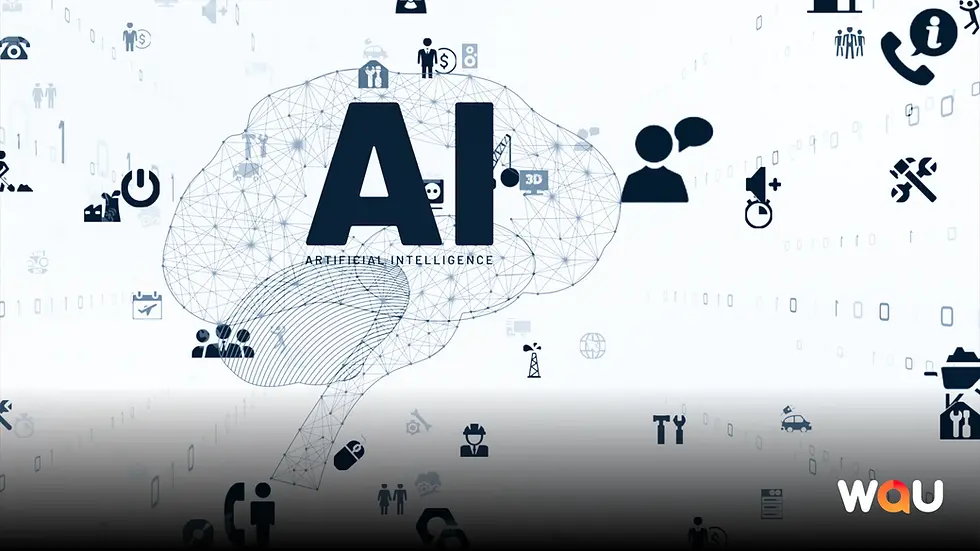AI Agents: The New Engine of Operational Efficiency in Capital Markets
- WAU Marketing

- May 15, 2025
- 3 min read
Since the launch of ChatGPT in 2022, the financial services industry has been anticipating the transformational power of artificial intelligence (AI). That era of speculation is over—AI is now being implemented across multiple verticals. Generative AI (GenAI), especially when deployed through workflow agents, fundamentally reshapes how brokers, investment banks, asset managers, and custodians process and settle trades.
By orchestrating complex decisions and automating intricate tasks—such as dynamic inventory management—using collaborative AI agents, these GenAI-powered operational solutions actively reduce risk, cut costs, and push markets closer to a real-time future. The impact is both deep and fast-moving. Early adopters of next-gen platforms will secure a critical competitive edge: operational alpha.

🧠 What is Operational Alpha?
Operational alpha is the performance advantage an asset management or wealth firm gains by optimizing internal operations—like reconciliations, compliance, risk analysis, or customer service—through automation, AI, and efficiency. It’s not about investment decisions; it’s about operating faster, with fewer errors, lower costs, and better client experiences.
⚡️ GenAI Comes at the Right Time
Rising trade volumes are straining legacy infrastructure and increasing operational risk. The shift to instant settlements and 24/7 trading requires faster post-trade processes and real-time capabilities across firms.
At WAU, we’re helping financial institutions modernize their platforms to connect with this evolving ecosystem.
Meanwhile, margin pressure from widespread digitalization in capital markets demands a fast, scalable, and cost-effective new operations model. AI Agents offer a compelling solution.
🤖 From Language Models to Autonomous Agent Orchestration
The evolution from powerful language models to advanced reasoning engines (like OpenAI’s o3) has paved the way for AI agents—specialized, autonomous entities designed for operational tasks. These agents interpret large, often unstructured data sets and make context-aware decisions, frequently without human input.
This shift empowers AI to support human operators and autonomously orchestrate entire operational workflows through coordinated agent activity—a digital “special ops team.”
These advances rely heavily on robust data environments. Over the past decade, financial firms and tech providers have dismantled data silos and unified governance frameworks. A leading example is Broadridge’s OpsGPT, a platform that uses massive data volumes and GenAI agents to execute high-precision operational tasks.
🧩 Workflow Agents in Action: The Digital Workforce
Today’s GenAI platforms are designed around automation-first principles. Rather than flagging issues for human intervention, they deploy collaborative AI agent teams that act autonomously.
Imagine this digital workforce:
A Reception Agent reads an email inquiry about a settlement discrepancy.
A Data Retrieval Agent pulls relevant trade, position, and counterparty details from multiple internal (and external) systems.
An Analytics Agent identifies the root cause and recommends the optimal resolution path.
A Communication Agent drafts a SWIFT message or email—or even initiates a corrective transaction—based on predefined rules.
An Orchestrator Agent supervises the workflow, routing tasks efficiently and escalating only valid exceptions to human experts.
This is the real power of AI agents. In critical failure scenarios, agents autonomously analyze root causes, classify errors, and launch resolution protocols—often triggering automated communication with internal or counterparty systems. Settlement issue cycles that once took days are now resolved in minutes. The next step: proactively preventing failures.
📈 Beyond Error Reduction: Systemic Operational Advantage
Workflow agents also drive broader business outcomes:
Capital Efficiency: AI agents act like digital treasurers—managing global securities inventory, detecting imbalances, executing rebalancing actions, and optimizing capital use.
Holistic Risk & Transparency: Agents provide real-time enterprise views of operational risk and performance by aggregating data from isolated platforms, accelerating decisions and strategic execution.
Customer Experience Boost: AI agents enable intuitive chat interfaces and personalized, contextual email communications. Platforms like Reach.tools automate the entire customer journey—from ad interaction to final payment—delivering seamless, frictionless engagement.
Crucially, these agents are self-learning: each successful (or failed) task sharpens their decision-making logic and improves the underlying models. Firms don’t scale headcount—they scale operational intelligence.
🥇 The First-Mover Advantage
AI-powered operations platforms with autonomous agent capabilities are new, but their impact is immediate. According to digital transformation studies, 72% of firms are making moderate to significant investments in GenAI this year, up from 40% in 2024.
More than one-third expect ROI within six months.
What does that ROI look like?
Real-time intelligence embedded into post-trade workflows.
Digital agents are integrated across daily operations
Rapid reductions in complexity, manual workload, and capital costs
Boosted risk management and execution efficiency
This is operational alpha in action—delivering a strategic edge to those who move first.
🧩 WAU’s Role: Enabling the Future of Financial Operations
At WAU, we believe the future of financial services lies in the intelligent integration of AI agents with core systems.
As experts in core banking modernization and tailored development, we enable financial institutions to capture operational alpha through technological transformation.
Our services evolve legacy platforms into architectures ready to connect with advanced AI ecosystems—eliminating data silos and enabling intelligent automation.
We transform infrastructure without disrupting operations—bridging the robustness of traditional systems with the transformative power of autonomous AI agents.

.webp)



Comments